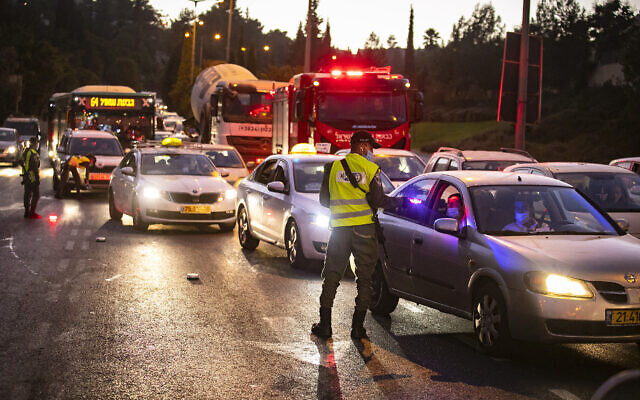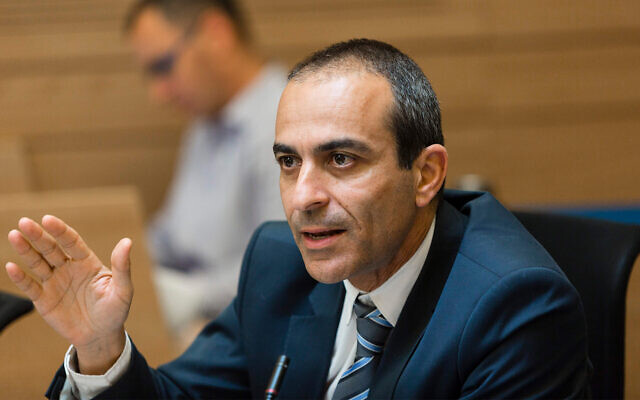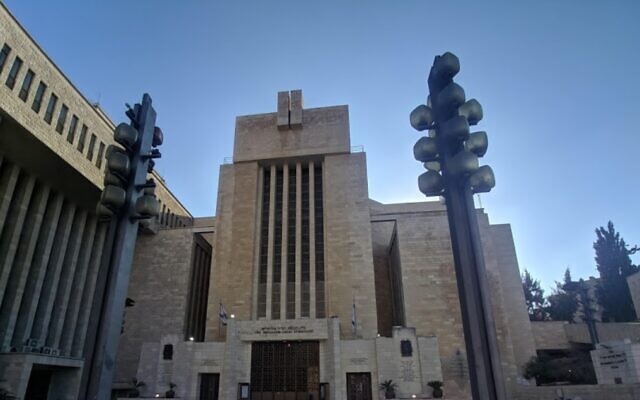Israel Strengthens Three-Week Lockdown
Controversial restrictions go into effect as number of COVID-19 cases soars to highest level.

On Dec. 31 of each year, Americans wish each other a Happy New Year. Worldwide, Jews at Rosh Hashanah wish each other Shana Tova, or Good Year. This year they may be wishing each other Shana Yotair Tova, or a Better Year.
As Israelis entered the Rosh Hashanah weekend, they certainly were happy to say goodbye to the last year. At least initially, however, they weren’t pleased with how the new year was starting. Israel became the first advanced country to enter a second national lockdown Sept. 18 in an effort to control the COVID-19 virus that has resulted in the country having one of the highest infection rates in the world.

Within days of the lockdown, the Israeli government had to impose stronger restrictions to go into effect at 2 p.m. Friday, Sept. 25, because the situation had dramatically worsened.
The number of new COVID-19 cases skyrocketed to more than 10,000 in one day, Israeli hospitals were overwhelmed with new COVID patients – some of whom had to wait in ambulances for hours to get hospital admittance – and refrigerated shipping containers capable of holding hundreds of corpses waiting funerals were ordered.
According to Israel newspaper Haaretz, the country recorded 100,000 COVID cases in the first six months, then doubled it in 32 days. The rate of positive tests rose from 2 percent in May to nearly 12 percent.
It’s likely the government will close Ben Gurion International Airport for outbound flights any day.
The lockdown – in effect through the holiday of Sukkot – was met with nearly across-the-board complaints and threats of civil disobedience. Within the first 48 hours, police reported that nearly 3,000 fines were handed out to individuals and businesses.
According to The Times of Israel, most of the fines were given to people who went more than 1 kilometer or 0.62 miles from their homes without traveling for an essential reason. Hundreds of fines were presented for failure to wear masks, a few dozen to those who broke quarantine restrictions, and more than 30 were given to businesses who opened against the rules.
One Tel Aviv café “that opened in contravention of restrictions and was catering to some 50 customers was shut down by policemen, and its owner was given” a 5,000-shekel or $1,460 fine. Individual fines had been set at $145.
In mid-September, a survey by the Guttman Center for Public Opinion and Policy Research at the Israel Democracy Institute showed plunging support for Prime Minister Benjamin Netanyahu’s handling of the pandemic and its economic fallout. At the beginning of April, 57.5 percent of the population said they trusted his efforts to fight COVID. Five months later, that number had dropped to 27 percent.
The initial lockdown was put into effect hours before the onset of Rosh Hashanah and was expected to last at least three weeks. More than 7,000 policemen and soldiers were placed on duty to enforce the travel restrictions that included not traveling outside one’s city.
The new restrictions will allow synagogues to open with constraints on Yom Kippur, but otherwise, to be closed. Prayers outdoors are permitted in socially distanced groups of up to 20.

The Great Synagogue of Jerusalem on King George Street even decided to close for the entire high holidays because of the coronavirus pandemic. This is the first time, according to The Jerusalem Post, the landmark synagogue will be closed for services since prayers began there in 1958.
The highly controversial, second lockdown was necessitated, the government said, by skyrocketing numbers of COVID-19 cases. Prior to September, the number rarely reached 2,000 new cases a day. The Israel Ministry of Health said the lockdown rules could be eased if the daily rate dropped to 1,000 cases. Otherwise, the government said the lockdown could be extended beyond three weeks.
Unlike in the spring lockdown, parks and playgrounds are open to those who live nearby. Hotels, restaurants, shopping malls, swimming pools, gyms and hairdressers are all off limits during this lockdown.
After many in the ultra-religious community complained about the restrictions on attendance at services while the government had not imposed regulations on protesters, some restrictions were finally announced.
Demonstrators against Netanyahu’s handling of the coronavirus and his remaining in office as he is facing several corruption indictments have protested weekly outside the official prime minister’s residence as well as his personal home in Caesarea for months. Right before the lockdown started, police said protesters had to divide into groups of 20 while social distancing from each other. The government also limited the number of protestors in the Jerusalem demonstration to 2,000.
Israeli newspapers reported that several thousand protesters attended the anti-Netanyahu demonstrations in Jerusalem on Sunday, although the numbers were smaller than in previous weeks.
Also Sunday, Israel’s coronavirus czar Ronni Gamzu told an Israeli television station, “Our situation is very grave.” Gamzu said the country could face 600 deaths a month. Gamzu reportedly opposed the full lockdown. “It’s disgusting. I have to take some anti-nausea pills. It’s unprecedented.”



comments